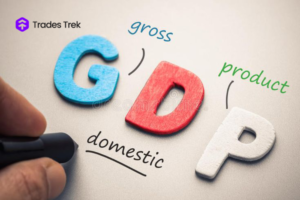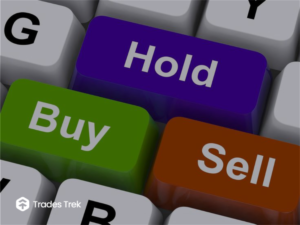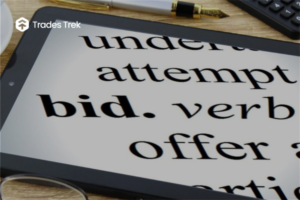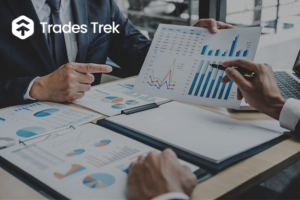ETF (Exchange-Traded fund) is a collective investment security, that can be traded just like individual stocks.
Practice investment strategies used on the Nigerian stock market for free without risking your money. Download Trades Trek Stock-Trading Simulator. Available on Android and IOS
An exchange-traded fund can track anything from a specific index to diverse sets of securities. Investing in ETF gives you access to a collection of assets, giving you a well-balanced portfolio and also reducing risk exposure. Mutual funds and Exchange-Traded funds are similar because they both involve collective investment. However, mutual funds only trade once daily after the market closes.
Where can I buy ETFs in Nigeria?
To ensure transparency, investors buy ETFs on the stock market through a licensed online broker listed with the Nigerian Stock Exchange.
Benefits of Investing in ETFs
Investing in Nigerian ETFs on the stock market comes with several benefits to investors;
- Cost-effectiveness: ETFs have lower expense costs compared to other funds, making them cost-effective.
- Diversification: Exchange-traded funds offer investors access to a well-balanced portfolio of securities thereby reducing investment risk exposure. Unlike investing in individual assets.
- Liquidity: Combining the flexibility of trading individual stocks and the diverse qualities of mutual funds. Market prices continuously trade ETFs throughout the trading period.
- Transparency: Regularly, current ETF holdings are disclosed to allow investors to make knowledgeable investment decisions.
How to trade ETFs as a beginner?
As a beginner, trading ETFs on the Nigerian Stock market can be done easily by;
- Opening a brokerage account with a licensed online broker.
- Carry out thorough research on the ETF choices available.
- After identifying the ETF that best suits your financial goals, place a buy order.
- Monitor your investment.
What costs are associated with ETFs?
The cost associated with ETFs depends on the traded fund and the online broker you choose. Typically, investors pay trade commissions to the brokerage platform upon successful trade execution. And operational expenses which include all management fees associated with your chosen ETF.
How To Identify a Good ETF?
Some online broker platforms offer an ETF screening tool, that allows you to sort through thousands of available ETFs. Some criteria used are:
- Expenses: As an investor, your main goal is to make profits. ETFs with lower operational expenses ensure a substantial part of investments go into the ETF and not management fees. However, there are some exchange-traded funds with high expenses and high performance, that generate enough profit to exceed the fees paid.
- Trading Volume: The trading volume of an ETF could indicate fund liquidity. Higher trading volumes could indicate easy trading of funds.
- Holdings: Some online brokers allow asset viewing of holdings within funds to help investors make informed decisions.
- Performance: The past performance of an ETF could be an indicator of future potential. But this may not always go as planned.
Free stock screening tool available on Android and IOS
FREE STOCK-TRADING SIMULATOR
Practice different investment strategies used on the Nigerian stock market for free without risking your money. Download the Trades Trek Stock-Trading Simulator for free on Android and IOS.




